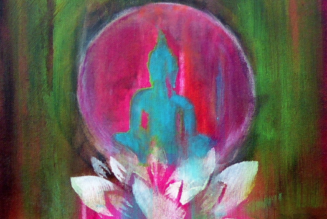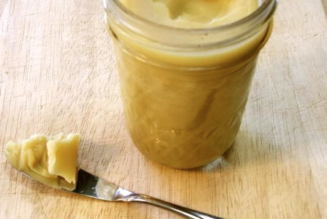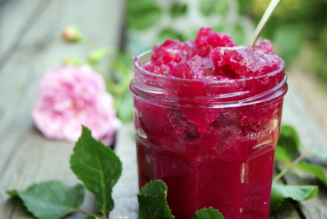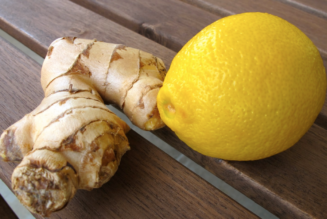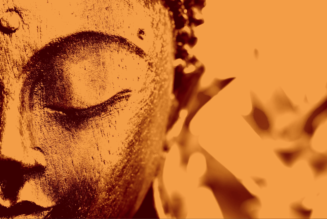Ayurveda Tips For Healthy Skin
Everyone wants to be beautiful. Yet throughout time, the concept of beauty has varied from various cultures around the world. It seems that all the teachings of Ayurveda are simply a means to remember the truth of who you are; you are inherently beautiful. One aspect of beauty that has remained consistent throughout time has been – good health. The ancient teachings of Ayurveda explain that beauty arises only after one has fully considered the foundation of good health; i.e. healthy digestion.
Ancient Wisdom …
“When the foundation of good health has been laid, by making the most of sunshine, fresh air, sleep, water, and food, it will be time to turn to the little details about the care of one’s complexion, hair, teeth, and nails.” – Vatyayana
Interestingly, since the skin has the ability to absorb nutrients we can say that the skin also performs digestion. In fact, it’s often said that if you cannot eat it, do not use it on your skin. That’s because the standard for Ayurveda is all about being pure and natural. After all, the skin is alive and lifeless chemicals are incapable of providing vitality to the skin. Therefore, if you’re concerned about health, well-being, and beauty then it’s just as important to know what you apply to your skin as it is to know the ingredients of your daily diet.
Glowing Skin – Ayurvedic Home Remedies & Beauty Tips – Grandmother’s Secret Recipe
Ayurvedic Skin Care
- cleanse
- nourish
- moisturize
The Cleanse
It’s no secret that proper cleansing of the skin involves removing toxins from the skin and exfoliating the skin on a daily basis. Unfortunately, most cleansing products, including soaps and scrubs can actually do more harm than good. Many cleansing products strip away the skin’s natural oils which can then excessively dry out the skin. As a result of excessive dryness, the skin responds by producing more oil which can exacerbate any pre-existing skin conditions, such as acne. Likewise, if you are already prone to dry skin, or have sensitive skin – harsh chemicals will only irritate the skin more. Therefore, it’s recommended to consider more natural herbal powders to clean and exfoliate the skin on a daily basis. Ayurveda herbal powders are balancing, nutritive and are free of toxic ingredients.
Ayurvedic Herbal Cleansing Soaps
Gentle herbal soaps which combine special blends of ayurvedic herbs.
Ayurvedic Youthful Skin Cleansing Gel
This rich and gentle formulation can be used as often as needed each day to keep facial skin clean and soft.
5 Steps For A Natural Exfoliant
Popular chemicals peels, such as alpha hydroxy, and retin A, often are harsh on the skin. Instead, consider a simple and natural peel.
- Take a tsp of besan, or gram flour,
[which is a natural exfoliant and helps remove dead cells] - Add a tsp of dry milk powder, which nourishes the skin.
- Now, add enough water to make a thin paste.
- Wash your face with warm water, and gently scrub this over it.
- After bathing, wash this off.
Nourishing & Moisturizing The Skin
Nothing is as nourishing as nature and it is to no surprise that many chemical products rarely do the job as well as nature. The teachings of Ayurveda recommend to use only pure essential oils, which are naturally hydrating and rich in nutrients. After all, the skin ingests these products and as mentioned before – “if you cannot eat it, do not use it on your skin”. According to Ayurveda. food is medicine.
A Natural Home Nourishing Moisturizer
1. Take ¼ cup of honey
2. Add 2 tsp of olive oil
3. Add 4 tsp of oatmeal
4. Mix it well
5. Apply this mixture on the skin areas which need moisturizing
6. Leave it on for about 10 minutes
7. Rinse it with warm water
In-Depth Look At Skin Conditions
Dr. Gaurang Joshi is a world renowned Ayurvedic Physician who has expertise on chronic diseases and a specialist in skin conditions and Ayurveda oncology. Below, Dr. Joshi helps to provide a more deeper understanding of skin from an Ayurvedic perspective.
“Twak” is the Sanskrit word used for Skin in Ayurveda and often the skin is considered the mirror which reflects various other conditions of the body. In Ayurveda, major skin diseases have been classified under the heading of “Kustha”. All Kustha conditions occur due to the involvement of the doshas [vata-pitta-kapha]. Kustha is caused by the morbidity of seven factors. They are the three doshas vata, pitta and kapha which get vitiated by various causative factors, four dhatus of the body i.e. Twak (Skin), Rakta (Blood), Mamasa (Muscle) and Laseeka (Lymph). These groups of seven factors produce all the varieties of Kushtha; i.e. skin diseases.
Ayurveda describes seven layers to the skin …
1. Avbhasini
2. Lohita
3. Shweta
4. Tamra
5. Vedini
6. Rohini
7. Mamsdhara
Some terminology used for the symptoms of skin diseases used in Ayurveda …
- Pidika, Pitika— papule, Vesicle, Pustule
- Mahavastu -plaques, patches
- Sphota- bullae, blister
- Mandala, parimandala, utsanna mandala
- Kotha- weal
- Vrana- wound
- Matsya Shkalopmam – skin patches
- Hasti Charmavata- lichenification
- Sphutanam- cracks
- Vivarnata – discoloration, maculae
Various other skin conditions described in Ayurveda
• Kushtha
• Shittapitta
• Visarpa
• Udarda
• Kotha and Uthakotha
• Visphotaka
• Masoorika
• Romantika
• Kshudra Roga
• Updansha
• Phiranga
Ayurveda Causative Factors…
Abhyantara Karana (Internal Factors):
- These are the seven causative factors namely the three doshas which are rendered morbid through their aggravation & the four Dushyas; i.e. skin [twak], blood [rakta], muscle [mamsa] & lymph [lasika], which are vitiated by the morbid doshas. These seven dravyas are collectively termed as “Prakruti” (C. Ni. 5/3-4).
Bahya Karanas (External Factors):
- Aharaja (Dietary) : Improper diet, excessive eating, consuming meat with milk or taking the next meal soon after the previous meal, eating fish with milk, excessive intake of Hayanaka, Kakamachi etc. with excessive intake of milk curd & butter milk may be included under this group (C. Ni. 5/6).
- Viharaja(life style): Suppression of the natural urges, suppression of vomiting, sudden switching over from Apatartana to Santarpana or vice versa, misconduct, killing the virtuous persons, physical exercise, excessive sexual indulgence, etc. may be included under this heading (C. Ni. 5/6)
- Papakarma: The influence of action done in the past & present birth is also seen to be a positive factor of Kustha Roga. (C. Sh. 1/116).
- Sankraman (Contact): If an individual converses with an affected person, touches him, inhales his expired air & vapours or sleeps with him on the same bed, uses his clothes or the garlands worn by the affected person, may get affected by the skin diseases as well as by others contact diseases too (Su. Ni. 5/32-33).
- Hereditary (prakruti Dosa): Kustha may be produced in children by the vitiated humors of the patient’s Shukra & Shonita.
- Sankraman (Contact):If an individual converses with an affected person, touches him, inhales his expired air & vapors or sleeps with him on the same bed, uses his clothes or the garlands worn by the affected person, may get affected by the skin diseases as well as by others contact diseases too (Su. Ni. 5/32-33).
- Hereditary (prakruti dosha): Kustha may be produced in children by the vitiated humors of the patient’s Shukra (Sperm) & Shonita (Ovum).
PATHOGENESIS OF SKIN DISEASES
- The process of the disease formation, right from the contact of the etiological factors with the body to the fullest manifestation of the disease is known as pathogenesis or Samprapti (C. Ni. 1/11).
- Kustha Samprapti (Pathogenesis) according to Charaka
- Because of the various causative factors all the 3 Doshas are simultaneously provoked & induce defect the four body elements (Twak, Rakta, Mamsa & Laseeka). The 4 Dushyas become morbid & loose their character. This provoked Doshas settling themselves in these vitiated body elements & getting localized there, then vitiate them further & produce Kustha (C. Ni. 5/6).
- According to Chakrapani datta, the vitiated Doshas become steady in body element, then they cause Kustha, not when they are in circulating or fluid state.
About Dr. Gaurang Joshi
International Ayurveda Consultant
- B.A.M.S., M.D.(Alternative Medicine),M.E.T.C.
- M.D.(A.M.) from IIAM
- Consulting Ayurved Panchkarma Physician
- Expert In All Chronic Diseases
- Ayurveda Skin Specialist
- Expert In Ayurveda Oncology
- President-International Psoriasis Foundation
Disclaimer
The sole purpose of these articles is to provide information about the tradition of ayurveda. This information is not intended for use in the diagnosis, treatment, cure or prevention of any disease. If you have any serious acute or chronic health concern, please consult a trained health professional who can fully assess your needs and address them effectively. If you are seeking the medical advice of a trained ayurvedic expert, call or e-mail us for the number of a physician in your area. Check with your doctor before taking herbs or using essential oils when pregnant or nursing.

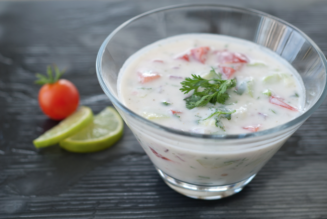
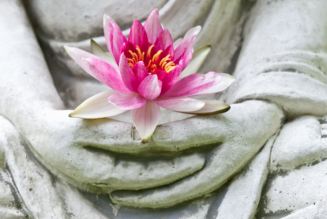
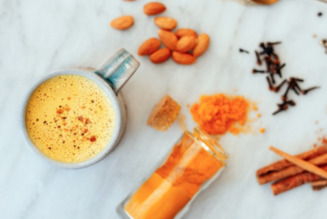
![Female Health: Amenorrhea [cessation of menses] – An Ayurvedic Perspective](https://healthyayurveda.com/wp-content/uploads/2015/07/1.-Amenorhea--327x219.png)
